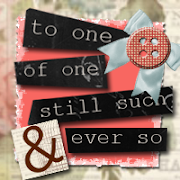But instead of taking Wilde or Shaw, I chose a new author: Pedro Calderón de la Barca. He is one of the most influential Spanish playwrights (which I didn't know before), and among his many plays, ths time I chose to read Life is A Dream - one of his finest works.
It's such a shame that I don't speak Spanish, so I was forced to choose a translation. At last, after considering whether I want to read in prose or poetry, I chose Denis Florence Mac-Carthy's translation, because that particular translation tries to use the original metre of the play. The result is a kind of play I've never read before.
Let's look at the plot first.
***
This play is about a man named Sigismund. He had been imprisoned and chained his whole life for the crime of "being born". No one knew that he was there, nobody visited him but a caretaker, Clotaldo, servant to the King of Poland.
However, one day, Rosaura, a lady dressed as man, and Clarin incidentally found the tower where he was kept. Rosaura was in search of a man who took her honour to avenge herself. Her mother gave her a sword, saying that someone among the nobles of Poland would prove to be her friend. Upon seeing the sword, Clotaldo recognised her as his son (he didn't know she was a woman), and took both Rosaura and Clarin to Court.
Meanwhile in court, Astolfo, Duke of Muscovy, was discussing with his cousin Estrella the prospect of ruling Poland together. Estrella didn't reject the idea of marriage with him altogether, but she was doubtful as to his fidelity, since she once saw him wearing a locket with a woman's picture inside. The King called them, and revealed that he in fact, had a son, locked and chained in a tower, because of a prophecy that he would kill his father and become a tyrant. The King felt guilty for trusting the prophecy too much, and decided to try his son's disposition, whether he would indeed be a good king or not.
Their plan was to sedate Sigismund and brought him into the palace. When he woke up, he was confused. Clotaldo revealed that he was actually a Prince and that the King wished to reinstate him. Sigismund was furious. He couldn't forgive his father and everyone involved (including Clotaldo) for his suffering. When Astolfo, Estrella, and other Rosaura entered, he ended up offending almost everyone (except Rosaura I suppose). The king sedated him and he fell asleep.
Sigismund woke up in his prison again. Clotaldo convinced him that he was but dreaming, but added that even though it had been a dream, he should have done the right thing.
"For 'twere well, whoe'er we be,
Even in dreams to do what's right."
But then it turned out that the people didn't like the idea of being ruled by a foreigner (Astolfo). So they liberated Sigismund from prison, and made him their king. Rosaura, disappointed that her father didn't want to defend her honour, supported Sigismund. The army of the king, Estrella, and Astolfo was lost to the army of Sigismund. Instead of killing his father as prophesied, Sigismund forgave him and spared his life, along with Clotaldo's. The attractive Rosaura was reunited with her lover, Astolfo, who, although reluctant at first to marry a lowly girl, relented when Clotaldo revealed that she was her daughter. Sigismund himself married Estrella, and ruled as king, with the blessing of his father.
*****
For me, the play is really interesting. Plot-wise, like most plays, it's a bit complicated, but dialogue-wise, it's a gem. Sigismund is described as a philosophical character, who likes to know the meaning of his existence.
"Since man's greatest crime on earth
Is the fatal fact of birth - "
Another thing discussed in this play is the never-ending-problem of fate vs. free will. Can one break his destiny? Or rather, does fate exist?
But the thing that I love the most about this play is how it likens our lives to dreams.
"What is life? A thing that seems,
A mirage that falsely gleams,
Phantom joy, delusive rest,
Since is life a dream at best,
And even dreams themselves are dreams"
And most importantly, that it doesn't matter whether we dream or not, because either way, we need to do what's right. It's interestingly timely, because just a few months ago I was having a discussion with my father as to whether a man, doing a wrong thing in his dream, is still guilty of his wrongdoing, although it's not "real". I am glad I'm not the only one who thinks that he's guilty.
*****
This is becoming too personal. So, how's your reading? Don't forget to share the link. Happy reading.



















